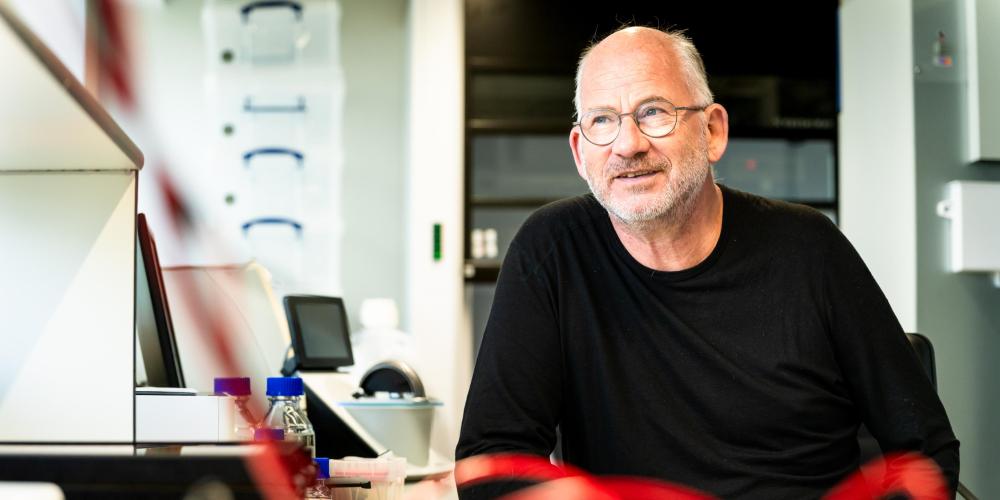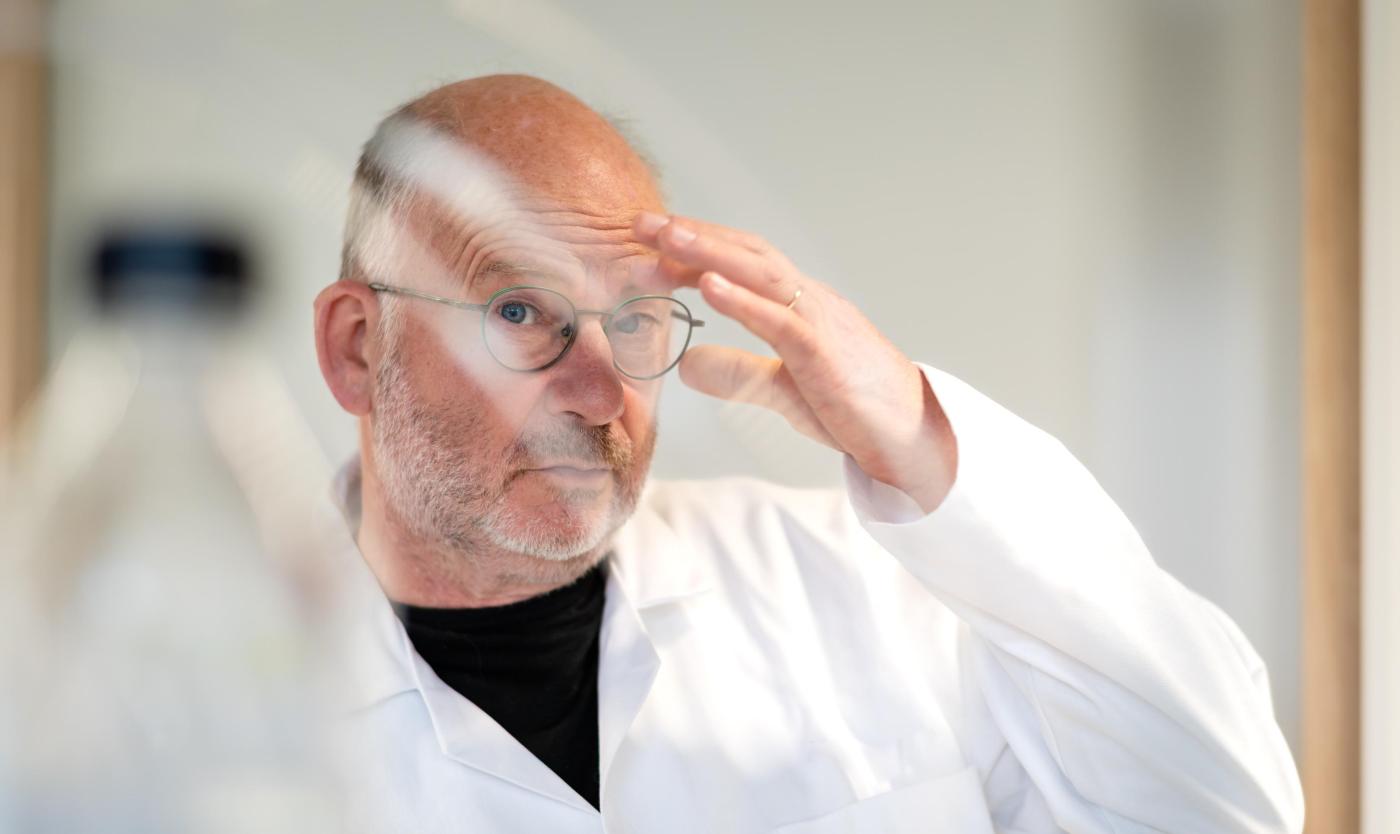
He went to San Francisco for a quick weekend trip to receive the Christian B. Anfinsen Award. This international prize recognises groundbreaking developments in protein science. Barely back home, we catch up with him. Jan Steyaert is a professor in structural biology at the VUB and Scientific Director of the VIB-VUB Center for Structural Biology. “Everyone is working with nanobodies now. You’re also seeing more and more applications of them in medicine.”
How important is this award for your research? Does it open doors for you?
“It’s mainly an award with a lot of academic recognition worldwide. It’s been awarded for about 25 years by The Protein Society to top scientists. It’s recognition by top peers, so I’m in good company. The award is named after one of the founders of our field, Christian B. Anfinsen, who received the Nobel Prize in 1973. He meant as much to biochemistry as Einstein did to physics or Schrödinger to chemistry.”

Do you see yourself following in Anfinsen’s footsteps and winning the Nobel Prize one day?
“Absolutely not. I may have a certain reputation, but I’ve never made a breakthrough that could be Nobel-worthy. You can usually predict quite well who will win the Nobel Prize in the coming years – the last winner in our field was at the top of everyone’s list. Besides, I don’t do science to win prizes. Of course, awards like the Anfinsen Award help to boost your CV and open doors.”
Will your field of research, nanobody technology, lead to more breakthroughs?
“There will definitely be more innovations coming to market. All the big pharmaceutical companies have adopted nanobody technology since the patents largely expired in 2018. Previously, classical antibody technology was the standard for 40 years. Now everyone is working with nanobodies. You’re seeing more and more applications in medicine. Coincidentally, the speaker before me in San Francisco was a top medical scientist. After my lecture, he invited me to dinner. I didn’t realise it at first, but it was the first time I sat at a table with a billionaire. He owns countless spin-offs and was one of the founders of Moderna, which, among other things, developed the AIDS vaccine. He didn’t invite me for nothing, of course. Nanobody technology is also used in the spin-offs and companies I’ve helped to establish. Later this year, I’ll be co-founding a new pharmaceutical spin-off at the Bio Incubator Brussels of the VIB-VUB Center for Structural Biology, which will also use this technology. In that context, such international contacts are important.”
“The major institutions in Europe are now able to attract the top talents to Europe”
How should we view your lecture there? As a formal thank-you or did you share research results?
“It was a scientific lecture. I had 15 minutes to tell the story of the past 20 years. In the last 10 minutes, I presented completely new research data. I also unveiled the technology around which the new spin-off in Brussels will be built for the first time.”
Did you have time to speak with other scientists?
“Time was limited, but during a few conversations I picked up that science in the US is under heavy pressure due to President Trump. He has blocked a lot of funding. Many scientists, for example, can no longer attend conferences. This issue is being discussed, but it’s so sensitive that no one dares to speak openly. They’re afraid. In the scientific community, it’s a dramatic issue. Harvard is currently wealthy enough to weather this Trump term, but many smaller universities are already out of money. In addition, countless green card holders are afraid. The US has relied on the import of scientific excellence for 30 years. The PhD students and postdocs are almost all immigrants, and now all doors are being closed to them.”
Does that offer opportunities for Europe, for the VUB or the Bio Incubator?
“American scientists and people who would otherwise do their postdoc or PhD in the US will definitely come here. The major institutions in Europe are now able to attract the top talents to Europe, and the VUB may be able to appoint some of them as well. It’s not unthinkable that the major American investment funds for scientific research will also start looking to Europe. Investors are also looking for stability, and that’s hard to find over there now. Another important point to consider is the fact that the EU requires scientists to make their research data public. The question is whether that’s wise under the current circumstances, because you’re training American AI systems for free. Moreover, all our data storage is on servers in the US. Are we going to keep doing that with that crazy president in charge?”
Bio Jan Steyaert
Jan Steyaert is a professor in structural biology at the VUB and Scientific Director of the VIB-VUB Center for Structural Biology. His innovative applications of nanobodies – small, powerful antibodies – as molecular tools have enabled researchers worldwide to capture dynamic proteins in specific functional conformations. His current work focuses on designing nanobodies as research tools in biotechnology and molecular pharmacology, and on discovering nanobodies to develop medicines. Jan Steyaert is co-founder of Ablynx and Agrosafve, and founder of ConFo Therapeutics, three successful VUB biotech spin-offs that valorise the unique family of nanobodies in agriculture or therapy. On 27 June, he received the prestigious Anfinsen Award at the congress of The Protein Society for his groundbreaking research. Later this year, he will launch a new spin-off at the Bio Incubator Brussels.